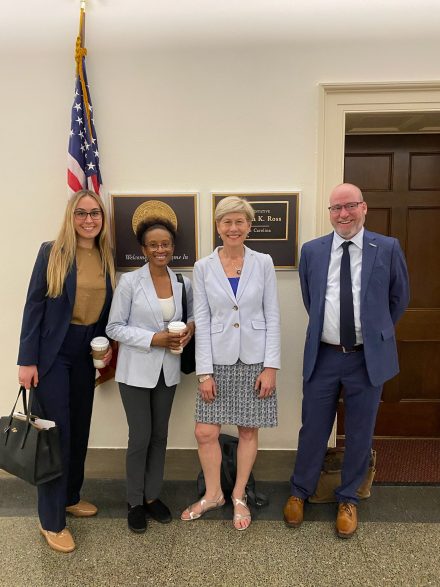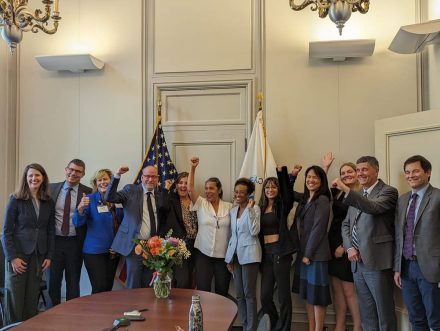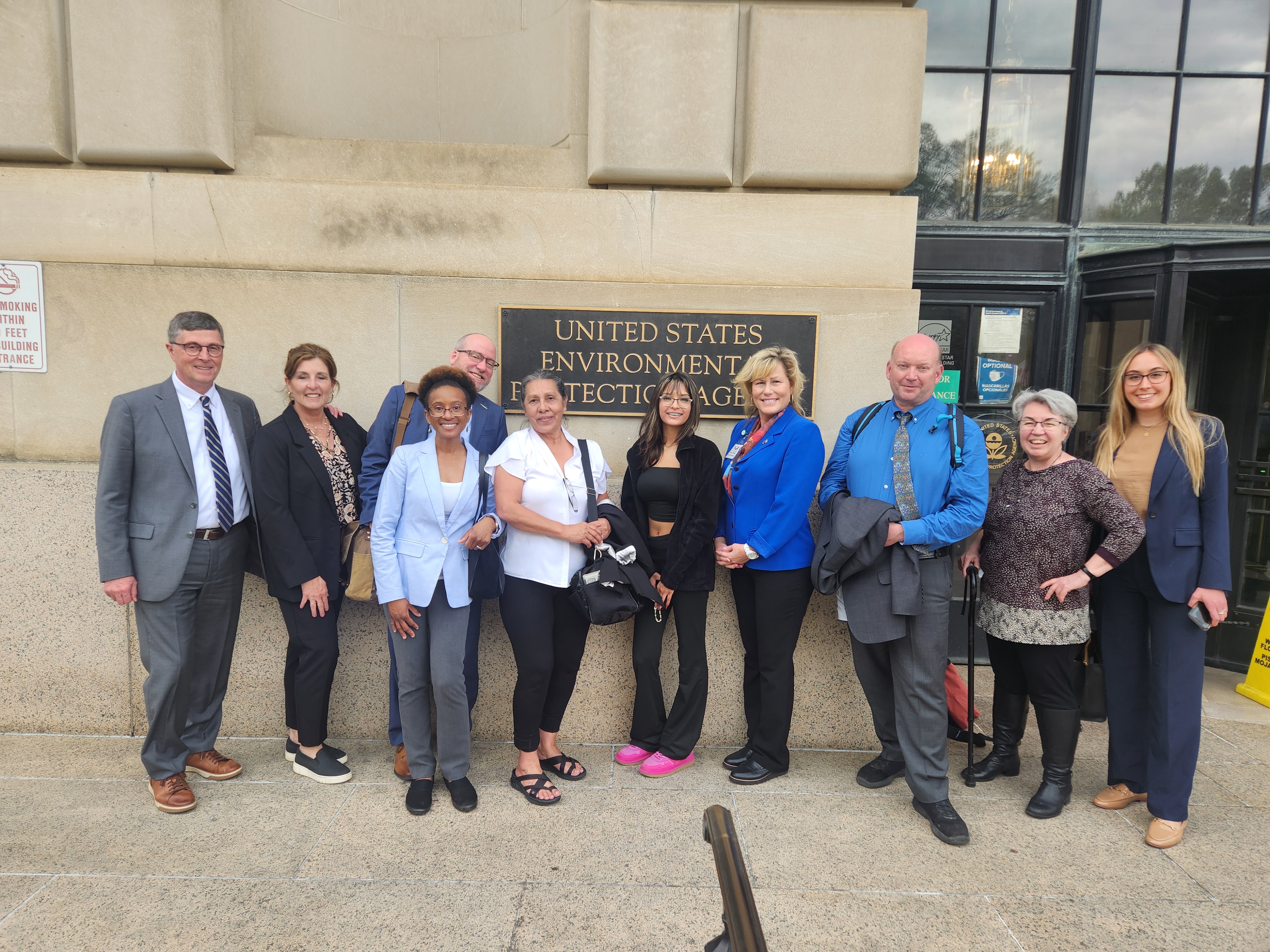Assistant Professor of Biology Jessica Merricks travels to Washington, D.C. to meet with lawmakers regarding "forever chemicals”
Elon Biology faculty member Jessica Merricks joined community members from around the nation in Washington, D.C. this week to urge the White House, U.S. Environmental Protection Agency and members of Congress to protect communities from PFAS contamination.
Merricks, an assistant professor of biology, met with U.S. Reps. Foushee, Manning, Ross, Murphy, and Rouzer and U.S. Sens. Budd and Tillis from North Carolina and a host of other leaders while in D.C. Merricks has been seeking to clean up the drinking water in Pittsboro, North Carolina, which is contaminated by several industries upstream along the Haw River. Her advocacy organization, Clean Haw River, has been active on this issue since 2020. Community members from Arizona, Georgia, Michigan, North Carolina, Pennsylvania and Wisconsin were also in Washington to urge the government to address the toxic “forever chemical” crisis.

“Communities in North Carolina and around the country deserve safe drinking water that is free of toxic PFAS chemicals. I am here in Washington, D.C., to emphasize the important role our federal elected officials and EPA must play in this fight,” Merricks said. “Our community’s health depends on swift action at the federal level to protect drinking water and hold industrial polluters accountable for their waste.”
During the three-day trip to Washington, DC, April 9-11, Merricks pressed for strong rules to address “forever chemicals” and to oppose pending legislation that could shield some polluters from paying for cleanup under the Superfund law. Specifically, by designating the chemicals PFOA and PFOS as hazardous substances under the law, the EPA will have the authority to force clean-up actions by polluters, and to make polluters pay to avoid releasing the toxic chemicals to the environment.

While Merricks was in Washington, EPA Administrator Michael Regan announced a new rule to restrict six PFAS “forever chemicals” in drinking water, including PFOA and PFOS. PFAS pollution of the environment and drinking water is widespread, contaminating drinking water in all 50 states at hundreds or thousands of locations due to incautious or irresponsible use and disposal of these toxic “forever chemicals.” Indeed, the EPA recently estimated that as many as 94 million Americans are drinking tap water contaminated with PFAS in excess of the agency’s proposed standards for just six of the more than 14,000 forever chemicals in this toxic family. PFAS are extremely persistent and toxic and can be highly mobile in the environment, whether they come from manufacturers or wastewater treatment plants. They often disproportionately harm certain already overburdened environmental justice communities that deserve full protection from these hazards.



